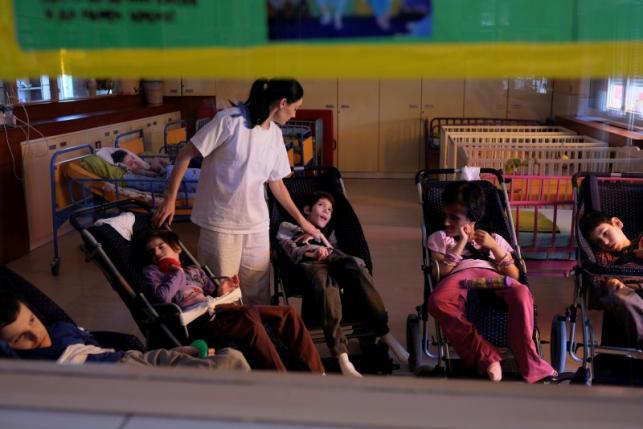
Serbia shuts disabled children away in institutions with substandard care and the European Union must make better treatment for them a prerequisite for joining its ranks, Human Rights Watch said on Wednesday.
A report by the rights watchdog said Serbia, which has begun negotiations to join the EU, has ratified United Nations conventions on the rights of children and of people with disabilities as well as against all forms of torture.
But its investigators found that parents of children born with disabilities were pressured to put them into state-run institutions where they were mostly neglected, got little schooling and were cut off from their families.
Serbia should aim to return children to their families if possible and support their inclusion in family and community life, where research has shown their mental and emotional development progresses much better, the report said.
"The European Commission, as part of monitoring compliance with the EU accession requirements, should hold Serbia to its obligations to respect the human rights of persons with disabilities as a precondition for EU membership," it said.
EU talks with Belgrade should stress "the absolute prohibition of neglect and discrimination against children with disabilities," it added.
Serbia's public health system is run down and has been short of funds since the former Yugoslavia's wars began in the early 1990s. In this traditional Balkan society, disabled children are often not understood and rejected by their own families.
The disabled make up about 80 percent of the children in the often understaffed care-giving centers, the report said, and 60 percent of the children in institutions do not attend school.
The report, citing studies of children returned to their families, urged Serbia to stop building these care-giving centers and establish a system of services for the children and their families to help integrate them into society.
"Children who were moved from an institution into family-based environment demonstrated signs of improvement in their intellectual functioning, attachment patterns, reduced signs of emotional withdrawal, and reduced prevalence of mental health conditions," it said.
The report recommended that EU member states make sure that respect for the U.N.'s Convention on the Rights of Persons with Disabilities is "part of the accession requirements".
It called on international financial organizations including the World Bank to help with funding to organize "support services for families of children with disabilities and prevention of institutionalization of children".
Serbia opened accession negotiations with Brussels last December and hopes to wrap up the talks by 2019.
Source: Reuters
 FR
FR EN
EN AR
AR








